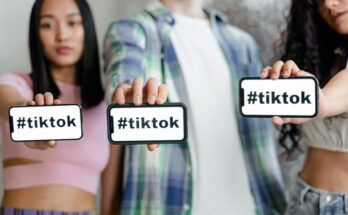When we hear the word propaganda, we are inclined to think about communism, the two World Wars, or the American elections in the last couple of years. We see propaganda as a negative thing, we see it as something that creates subjective views and that promotes false beliefs and events. Even though some of us might think that propaganda is not present anymore in today’s world, it is here more than ever. Propaganda is still undergoing in our societies, influencing people’s views on the world, on specific events or people.
But some educators and scientists have thought about education propaganda that could be introduced in schools. Teaching about propaganda in college is way better than encouraging students to read a book about it. They have the opportunity to address questions that bring more clarity and help them understand how propaganda works better. So, what is the importance of learning about propaganda in schools? Is propaganda in a democratic society crucial? Can it help or do it worse? Are there more propaganda types? Let’s see.
Basic media literacy
The world has developed tremendously due to the evolution of technology and all the tools that came with it too. Yet, these tools developed so quickly that we did not have the time to develop the skills we needed to use them. Of course, anyone can use technology as nowadays it is pretty intuitive. But not everyone has basic media literacy, which is one of the reasons propaganda is still working today. If you want to find out more about propaganda topics, you can find free essays and a propaganda paper example that share more details about this. However, one of the things that should be discussed within any school when focusing on propaganda education is basic media literacy.
Of course, evaluating propaganda techniques is equally essential. But the reason why propaganda, the mean intended one, is still working is because many people believe everything they see online. Basic media literacy refers to the ability of people to identify valid and true information in a sea of fake news. They should be able to access, analyze, and evaluate the information they find online and decide if they should trust it. And one of the skills that contribute to increasing media literacy is critical thinking. Which should be developed within any school. Talking about propaganda in schools is essential today, as it is still very present in our societies. And it should begin with developing basic media literacy.
How does propaganda work?
One of the subjects that should be discussed and approached in schools is the mechanics behind propaganda. It was associated for a long time with a negative outcome. The reason behind it is to manipulate the people and trick them into making decisions that support the goal of the government or propaganda initiator. However, even though we see propaganda as being manipulative, in a broader sense, it promotes a specific view or ideology. Before technology became so advanced, there were distinct ways propaganda was promoted.
From paintings to cartoons, radio shows, or pamphlets, this is how it was spread in communities a couple of years ago. However, now with all the technological advancements this has changed as the online world and technology offer all the tools for propaganda to work. Everyone uses social media and there is the option of paying for ads and promoting posts among a target audience. Which makes propaganda so easy to spread today. The downside of technology is that there are algorithms that even create fake or biased news and promote them online. So, we could say that propaganda is easier to spread during these times.
Can propaganda education enhance Democracy?
As propaganda is known to have a manipulative effect, can education about it actually enhance democracy? Well, the answer is yes. Learning more about the reasons behind the propaganda, the distinct types that exist, and why it still works so well can help students develop critical thinking skills.
These skills would help them spot fake or biased news and select the ones that present valid information that is not aimed at manipulation. Which can help them make informed decisions that actually enhance democracy. So, propaganda education is crucial these days when there are more and more tools that make spreading fake news or biased information way easier than before.








